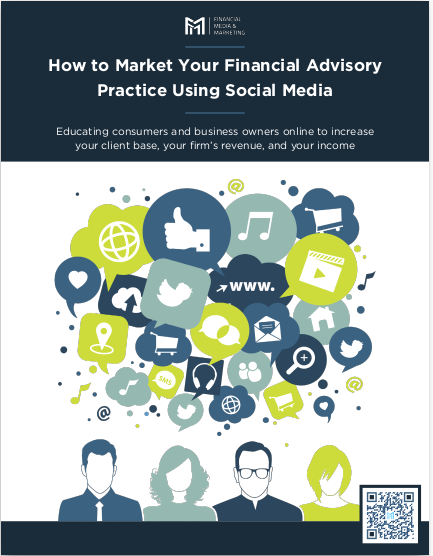Key Takeaways
- Establishing a robust online footprint and harnessing social media are essential for increasing visibility and attracting new clients.
- Engaging with content marketing, effective email campaigns, informative seminars, and client referral systems can significantly boost client acquisition and retention.
Strategic Marketing Approaches for Financial Advisors to Increase Client Base
In the competitive field of financial advisory, standing out and attracting new clients requires a multifaceted marketing approach. Financial advisors need to implement strategies that build their online presence, engage potential clients, and demonstrate their expertise. This article outlines strategic marketing approaches that financial advisors can use to increase their client base effectively.
Establishing a Robust Online Footprint
A robust online presence is crucial for financial advisors looking to attract new clients. Your online footprint is often the first point of contact potential clients have with your services.
Optimize Your Website
Your website should be professional, user-friendly, and optimized for search engines (SEO). Ensure that it is mobile-friendly, loads quickly, and contains relevant keywords that potential clients might use when searching for financial advisory services. Include detailed information about your services, team, credentials, and client testimonials to build trust and credibility.
Regularly Update Your Blog
Maintaining an active blog on your website can significantly enhance your SEO efforts and position you as an expert in the field. Write about topics that are relevant to your target audience, such as retirement planning, investment strategies, tax advice, and market updates. Regular blog posts not only drive traffic to your site but also provide valuable information that can convert visitors into clients.
Utilize Online Directories
List your business in online directories like Google My Business, Yelp, and industry-specific directories. These listings help improve your visibility in local search results and make it easier for potential clients to find you. Ensure that your business information is accurate and up-to-date across all platforms.
Harnessing the Power of Social Media
Social media platforms are powerful tools for reaching a broader audience and building relationships with potential clients.
Choose the Right Platforms
Focus on the social media platforms where your target audience is most active. LinkedIn is particularly effective for financial advisors due to its professional network. Facebook and Twitter are also valuable for reaching a wider audience and engaging with followers.
Share Valuable Content
Regularly share content that is valuable and relevant to your audience. This can include blog posts, market updates, financial tips, and industry news. Use a mix of content formats, such as articles, videos, infographics, and live streams, to keep your audience engaged.
Engage with Your Audience
Social media is not just about posting content; it’s also about building relationships. Respond to comments, answer questions, and participate in discussions. Engaging with your audience shows that you are approachable and invested in helping them.
Engaging and Educating with Content Marketing
Content marketing is a powerful way to attract and retain clients by providing valuable information and demonstrating your expertise.
Create Educational Resources
Develop comprehensive educational resources such as eBooks, whitepapers, and guides. These materials should address common financial concerns and provide actionable advice. Offer these resources for free in exchange for contact information to build your email list.
Host Webinars and Workshops
Organize webinars and workshops on financial topics relevant to your audience. These events provide an opportunity to showcase your expertise and engage directly with potential clients. Promote these events through your website, social media, and email marketing campaigns.
Publish Case Studies
Case studies are effective tools for demonstrating the real-world impact of your services. Highlight specific client challenges, the strategies you implemented, and the positive outcomes achieved. These stories can help potential clients envision how you can help them achieve their financial goals.
Crafting Effective Email Marketing Strategies
Email marketing remains one of the most effective channels for nurturing leads and maintaining client relationships.
Build and Segment Your Email List
Start by building a quality email list through your website, social media, and events. Segment your list based on factors such as client interests, financial goals, and engagement levels. This allows you to send targeted, personalized content that resonates with each segment.
Develop a Content Calendar
Plan your email content in advance to ensure consistency and relevance. Your emails should provide value, such as financial tips, market updates, event invitations, and exclusive offers. Avoid sending overly promotional content that could lead to unsubscribes.
Use Compelling Subject Lines
The subject line is the first thing recipients see and significantly impacts open rates. Craft compelling subject lines that spark curiosity or highlight the benefits of opening the email. Personalize subject lines with the recipient’s name or reference their interests.
Organizing Informative Seminars and Webinars
Seminars and webinars are excellent ways to demonstrate your expertise and provide value to potential clients.
Choose Relevant Topics
Select topics that address common financial questions and challenges faced by your target audience. Examples include retirement planning, investment strategies, tax optimization, and estate planning. Providing valuable insights on these topics can position you as a trusted advisor.
Promote Your Events
Use multiple channels to promote your seminars and webinars, including your website, social media, email marketing, and online advertising. Create compelling event descriptions that highlight the benefits of attending and provide easy registration options.
Follow Up with Attendees
After the event, follow up with attendees to thank them for participating and provide additional resources. This follow-up can include a summary of the key points discussed, links to relevant articles or guides, and an invitation for a free consultation. Following up helps maintain engagement and can convert attendees into clients.
Creating a Client Referral System
A well-structured referral system can be one of the most effective ways to grow your client base.
Encourage Satisfied Clients to Refer Others
Encourage your satisfied clients to refer friends, family, and colleagues. Let them know that you value their referrals and appreciate their trust. Make it easy for clients to refer others by providing referral cards, online forms, or a dedicated referral page on your website.
Offer Incentives
Offer incentives to clients who provide referrals, such as discounts on services, gift cards, or charitable donations. Incentives show appreciation and motivate clients to participate in your referral program.
Recognize and Reward Referrals
Publicly recognize clients who refer others through newsletters, social media, or client appreciation events. This recognition reinforces positive behavior and encourages ongoing referrals. Additionally, ensure that referred clients receive excellent service to maintain the integrity of your referral program.
Conclusion
Strategic marketing approaches are essential for financial advisors looking to increase their client base. Establishing a robust online footprint, harnessing social media, engaging with content marketing, implementing effective email campaigns, organizing informative seminars and webinars, and creating a client referral system are powerful strategies that can drive client acquisition and retention. By consistently applying these approaches, financial advisors can build their reputation, demonstrate their expertise, and ultimately grow their practice.
Contact Information:
Email: [email protected]
Phone: 1949245898
Bio:
Madison Browning holds a Bachelor of Science in Business Management and has extensive experience in leadership roles within notable companies. Currently, Madison serves as a marketing specialist for Financial Media Marketing. With a keen eye for design and a passion for storytelling, Madison is also an avid graphic designer and content writer, consistently delivering compelling and visually appealing content.










